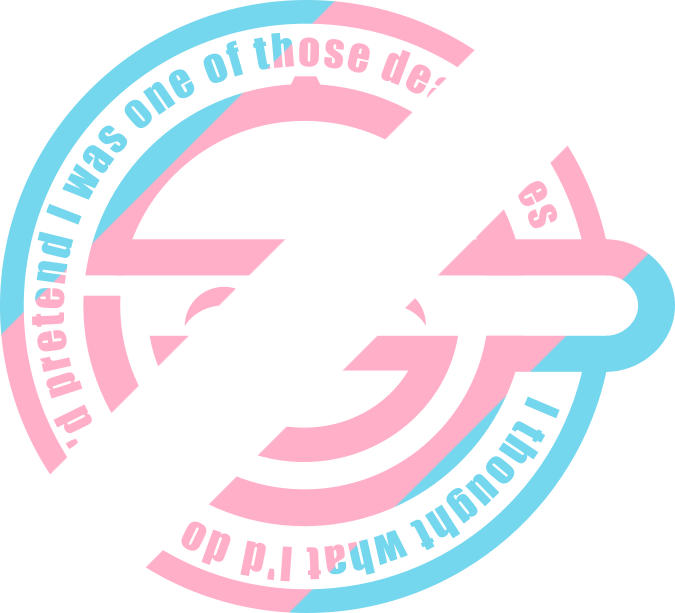Learn? They’re all shit at it.
Clearly by getting their shit together
Reminds me of a funny performance about the topic by a commedian named ISMO. He does a lot of things with the English language.
Its basically ripped from this guys act.
His bit on ass is funny as hell too
Came here to share Ismo too!
accuracy through obscurity and debate…the american english language
Easy, don’t learn no shit vocab.
No shit.
They generally leave the shitty bits to more advanced learners.
is this really about learning the English language, or is this about learning insular colloquialisms and slang? you never stop learning slang, even natives…
No cap.
Right this is a pretty awful example of English as a language. Like if I talk to a skibidi brainrot kid today I’d hear all sorts of shit I wouldn’t understand at all like:
“Bruh I literally I need to get on my sigma grindset and start mewing so I can looks max and pull that shmlawg gyatt with the rizzle. Then I can stop gooning like a beta sussy imposter. Bet she won’t fanum tax my bussin’ glizzy or there’ll be a whole bunch of turbulence and I’d literally hit the griddy on her. Only in ohio tho. Skibidi!”
I wouldn’t really say that means I don’t understand English as a language. Just that people are weird as hell with slang.
EnglishAmerican Culture.The structure of those sentences are very straightforward. The cultural zeitgeist that caused that one iteration to become positive in meaning is just random chance.
Like nested replies on Reddit that all say the same thing. All of them are being upvoted, except one of them is randomly being downvoted into oblivion.
Cat.
shit - adjective, bad
the shit - noun, good
.
you are shit - shit is an adjective, you are bad
you ain’t shit - shit still functions as an adjective, in some contexts this might be a good thing, but the phrase “you ain’t ____” most often is used to say the person doesn’t reach the level of the blank. For example “you ain’t all that” means you think/act like you are “all that” but you’re not at the level of “all that” you’re less than all that. If you “ain’t shit” it means you’re so bad that you’re less than shit, you dont even reach the level of shit with how bad you are. This is a devestating insult.
you are not the shit - the shit is a noun, its good, so not being the shit is insulting
you are the shit - the shit is a noun meaning good so this is a complement
TIL, be a noun, don’t be a fucking adjective.
ain’t is a contraction of “am/are not” popularized in the early 1700s, combined with the syncopic haplology of a definite article: so still works with the noun part. I agree this doesn’t make it easier for people to learn English, but it’s not like every other language in the world doesn’t have this.
“We’re in the shit now” - the shit, noun, bad
Thanks, Ismo
Laughing shit my off…?
Ismo is a Finnish comedian! He has a joke in one of his routines that plays out just like this. And that first letter is a capital i.
The King’s English
I take it you already know
Of tough and bough and cough and dough?Others may stumble, but not you,
On hiccough, thorough, slough and through.Beware of heard, a dreadful word, That looks like beard but sounds like bird.
And dead: It’s said like bed, not bead – For goodness’ sake, don’t call it deed!
Watch out for meat and great and threat… They rhyme with suite and straight and debt.A moth is not the moth in mother, Nor both in bother, nor broth in brother.
And here is not a match for there, Nor dear and fear for bear and pear,
And then there’s dose and rose and lose – Just look them up – and goose and choose.And cork and work and card and ward, And font and front and word and sword.
And do and go, then thwart and cart, Come, come, I’ve hardly made a start!
A dreadful language? Why, sakes alive! I’d learned to speak it when I was five.
And yet, to write it, the more I tried, I hadn’t learned it at fifty-fiveNot sure if that’s the name of the poem. It’s been (mis)attributed to a T.S. Watt, called “English”. A similar poem is The Chaos by Gerard Nolst Trenité, here read by Youtuber Lindybeige.
My mistake. I had it saved in an old note. Thanks for the correction!
And here is not a match for there, Nor dear and fear for bear and pear,
🤔
i’d still take this over the ett/en thing in swedish. basically, “ett” and “en” both mean “a” if they come before the word, and “the” if they get smashed onto the end of a word. (e.g., “ett apotek” means “a pharmacy”, but “apoteket” means “the pharmacy”; “en hund” means “a dog”, but “hunden” means “the dog”.)
but despite “ett” and “en” meaning the same thing, they aren’t interchangeable. some words are “ett” words, while others are “en” words, and you just have to remember which ones are which.
to further complicate things, there are some words that can end with “et” or “en”, but each ending means something different. this typically happens with “ett” words using “en” for the plural forms of the word. for example, “barn” means “child”, “ett barn” means “a child”, “barnet” means “the child”, but “barnen” means “the children”. (it’s worth also mentioning that “barn” means either “child” or “children”, depending on the context.)
Lots of languages have gendered nouns, though. Three genders isn’t uncommon in European languages and in most cases you just have to learn the nouns with their genders.
you’re right that lots of other languages have gendered nouns. however, swedish nouns are not gendered in the “traditional” sense. i.e., it is not the case that some nouns are “masculine” and others are “feminine”.
i think the wikipedia page does a good job of explaining it:
Nouns have one of two grammatical genders: common(utrum) and neuter (neutrum), which determine their definite forms as well as the form of any adjectives and articles used to describe them. Noun gender is largely arbitrary and must be memorized; however, around three quarters of all Swedish nouns are common gender. Living beings are often common nouns, like in en katt “a cat”, en häst “a horse”, en*fluga* “a fly”, etc.
edit: i wanted to clarify that this isn’t some major gripe i have with the language. i think all spoken languages are bound to have their own quirks and that’s okay, it can just make certain things a bit tricky when learning the language. as a whole, i think swedish is a very nice language
Swedish used to have masculine and feminine gendered nouns historically - and some dialects still do - but they were simplified into two grammatical genders, utrum and neutrum, just as your link says. (There are remnants though, for example “vad är klockan?” “hon är halv fyra”). Masculine and feminine were just squashed into the “utrum” gender, basically, and neutrum is neuter.
thank you for the explanation. that helps to clear things up a bit and it’s also nice to have some context for why things are the way they are in the language. i had always been told that the “ett/en” thing was just an arbitrary quirk of the language, so it’s nice to get a more concrete explanation of it.
the example you gave was also super helpful. i found it confusing that sometimes “hon” meant “it”. i had always been told (in casual conversations) that swedish wasn’t a gendered language, so that whole thing was quite confusing until now.
Then it might also be useful to know that in these cases, it’s also correct to say “den är halv tio” which might be a safer route for non-native speakers.
Kudos on you learning swedish though, it’s not always easy or completely logical but coming from English a lot of things should come for free.
shit and fuck are the most versatile words
Fuck that shit.
“I’m down for anything” and “I’m up for anything” mean the same thing.
Same with “drive down the street” or “drive up the street”
Disagree, to me ‘down’ implies youre open to chill events (i.e. sitting down) whereas ‘up’ youre open to more active events. But thats me.
I don’t think that’s a universally recognized distinction, but the more you use it that way and spread it around it could be one day soon.
Language is weird.
Agreed
So do “based on” and “based off” now. I can’t figure where “based off” came from or why we need it. A base has always been something you put things on. Things sit ON a base. They’re based ON it. Don’t get me started. Ok, too late… sorry.
Based off OF. they took parts off of the base and put them in their stock script about a love triangle.
My daughter says based off. Come to think of it I remember long ago noticing that DJs say a song is “off” an album and thinking no, songs are ON albums. OCD is a beautiful thing.
English: the most junkiest language I’ve learned until now. And it’s unfortunately the most prominent around the whole world, until the tragic downfall of the United States of America arrives.
“Most junkiest” is a redundancy.
The junkiest. Here’s my correction.
Don’t forget most places speak English because the UK colonized them.
There’s also this too. Shucks.












